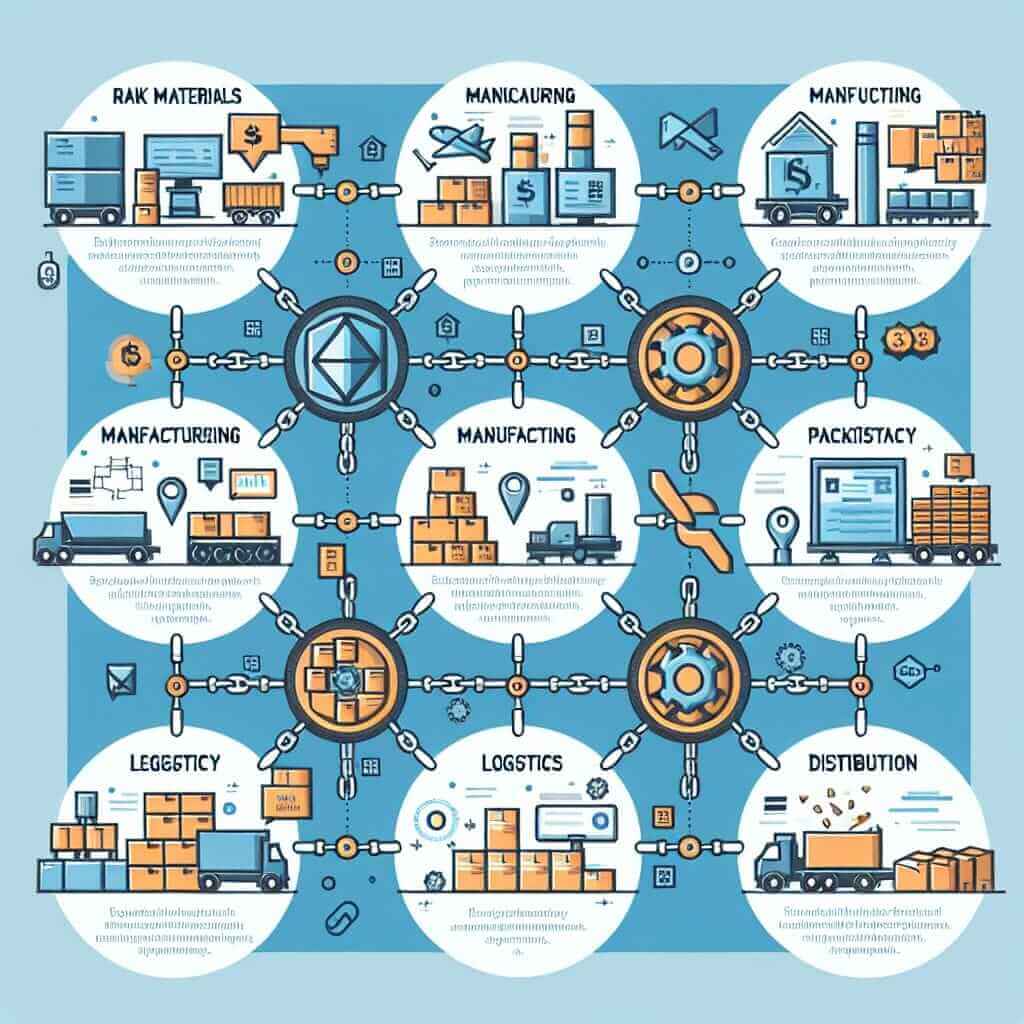The IELTS Reading section tests your ability to understand and interpret written text. Common topics often involve current events, technology, and business, making “How is blockchain technology influencing global supply chain management?” a highly relevant subject. This topic has seen increased prominence due to blockchain’s evolving nature and its applications in various industries. Given the trend, it’s likely to see such themes appearing in future IELTS tests.
Reading Passage
Below is a full-length reading passage designed to reflect the format of the IELTS Reading test, focusing on the given topic.
Blockchain Technology’s Impact on Global Supply Chain Management
Blockchain technology, originally created for Bitcoin transactions, is transforming various sectors, including global supply chain management. One primary benefit is enhanced transparency, as blockchain allows all participants to view each transaction, providing a tamper-proof ledger of events.
Implementing blockchain in supply chains can trace product origins, ensuring authenticity and reducing counterfeit products. For instance, in the food industry, consumers can verify the source and journey of their food products, enhancing food safety and trust.
Furthermore, blockchain enables real-time tracking of goods. Companies can monitor items from production to delivery, improving inventory management and reducing delays. This capability is pivotal in industries like pharmaceuticals, where timely delivery is critical.
Smart contracts are another revolutionary application of blockchain in supply chains. These self-executing contracts automate transactions once predefined conditions are met, minimizing the need for intermediaries and reducing costs.
However, challenges remain. Blockchain adoption can be costly, and the technology requires a shift in current operational models. Data privacy and regulatory concerns also pose significant hurdles.
Despite these challenges, the potential benefits of blockchain in global supply chain management are immense, promising increased efficiency, transparency, and trust.
[1] Question Set
-
Multiple Choice
- Blockchain was originally created for:
- A) Supply chain management
- B) Bitcoin transactions
- C) Data privacy management
- D) Pharmaceutical tracking
- Blockchain was originally created for:
-
True/False/Not Given
- Blockchain technology guarantees the authenticity of all products in the supply chain.
- Real-time tracking is a less significant benefit of blockchain for the pharmaceutical industry.
-
Matching Information
Match each benefit of blockchain with the statement that best describes it:- (i) Transparency
- (ii) Real-time tracking
- (iii) Smart contracts
[2] Answer Key and Detailed Explanations
-
Multiple Choice
- Answer: B) Bitcoin transactions
- Explanation: The passage states that blockchain technology was initially developed for Bitcoin transactions before influencing other sectors.
-
True/False/Not Given
- Answer: True
- Explanation: The text mentions that blockchain can trace product origins to ensure authenticity.
- Answer: False
- Explanation: The passage highlights that real-time tracking is particularly crucial for industries like pharmaceuticals where timely delivery is essential.
- Answer: True
-
Matching Information
- (i) Transparency – Blockchain allows participants to view every transaction, ensuring a tamper-proof ledger.
- (ii) Real-time tracking – Companies can monitor the progress of goods from production to delivery.
- (iii) Smart contracts – These automate transactions once predefined conditions are met, reducing costs and the need for intermediaries.
[3] Common Mistakes
Students often struggle with:
- Not identifying specific details (e.g., original purpose of blockchain).
- Misinterpreting false statements where a detail is exaggerated or minimized.
- Matching benefits without understanding nuanced differences between options.
[4] Vocabulary
- Transparency (n): /trænˈspærənsi/ – The quality of being easily seen through, recognized or understood.
- Authenticity (n): /ɔːˈθentɪsɪti/ – The quality of being genuine or real.
- Self-executing (adj): /sɛlf-ˈɛksɪˌkjuːtɪŋ/ – Performing actions automatically when conditions are met.
[5] Grammar Focus
- Relative Clauses: “Blockchain technology, which was originally created for Bitcoin transactions, is transforming various sectors.”
- Example: “Blockchain, which enhances transparency, enables all participants to view each transaction.”
Conclusion and Advice
To excel in the IELTS Reading section, focus on understanding the passage, discerning key details, and practicing various question types. Utilize practice tests on current topics like blockchain to stay relevant and refine your skills.
Practice makes perfect: regularly review vocabulary, grammar, and reading comprehension strategies to achieve a high score in the IELTS Reading test.

By adhering to the guidelines and practicing diligently, you can master the IELTS Reading section and achieve your desired score.